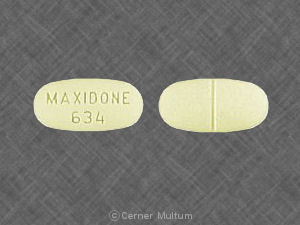Maxidone Interactions
There are 689 drugs known to interact with Maxidone (acetaminophen/hydrocodone), along with 19 disease interactions, and 1 alcohol/food interaction. Of the total drug interactions, 216 are major, 461 are moderate, and 12 are minor.
- View all 689 medications that may interact with Maxidone
- View Maxidone alcohol/food interactions (1)
- View Maxidone disease interactions (19)
Most frequently checked interactions
View interaction reports for Maxidone (acetaminophen / hydrocodone) and the medicines listed below.
- Abilify (aripiprazole)
- acetazolamide
- Actos (pioglitazone)
- acyclovir
- Adderall XR (amphetamine / dextroamphetamine)
- Aggrenox (aspirin / dipyridamole)
- allopurinol
- alprazolam
- amitriptyline
- amlodipine
- anagrelide
- Asacol HD (mesalamine)
- aspirin
- atenolol
- atenolol / chlorthalidone
- atorvastatin
- Avalide (hydrochlorothiazide / irbesartan)
- baclofen
- Bear-E-Yum GI (barium sulfate)
- Benicar (olmesartan)
- butalbital
- Butibel (belladonna / butabarbital)
- Bystolic (nebivolol)
- Carafate (sucralfate)
- carbidopa
- carvedilol
- Celexa (citalopram)
- Cephadyn (acetaminophen / butalbital)
- cetirizine
- sertraline
Maxidone alcohol/food interactions
There is 1 alcohol/food interaction with Maxidone (acetaminophen / hydrocodone).
Maxidone disease interactions
There are 19 disease interactions with Maxidone (acetaminophen / hydrocodone) which include:
- alcoholism
- liver disease
- impaired GI motility
- infectious diarrhea
- prematurity
- acute alcohol intoxication
- drug dependence
- hypotension
- intracranial pressure
- respiratory depression
- gastrointestinal obstruction
- PKU
- adrenal insufficiency
- liver disease
- renal dysfunction
- seizure disorders
- urinary retention
- arrhythmias
- biliary tract disease
More about Maxidone (acetaminophen / hydrocodone)
- Maxidone consumer information
- Compare alternatives
- Reviews (1)
- Drug images
- Side effects
- Dosage information
- During pregnancy
- Drug class: narcotic analgesic combinations
Related treatment guides
Drug Interaction Classification
| Highly clinically significant. Avoid combinations; the risk of the interaction outweighs the benefit. | |
| Moderately clinically significant. Usually avoid combinations; use it only under special circumstances. | |
| Minimally clinically significant. Minimize risk; assess risk and consider an alternative drug, take steps to circumvent the interaction risk and/or institute a monitoring plan. | |
| No interaction information available. |
See also:
Further information
Always consult your healthcare provider to ensure the information displayed on this page applies to your personal circumstances.


